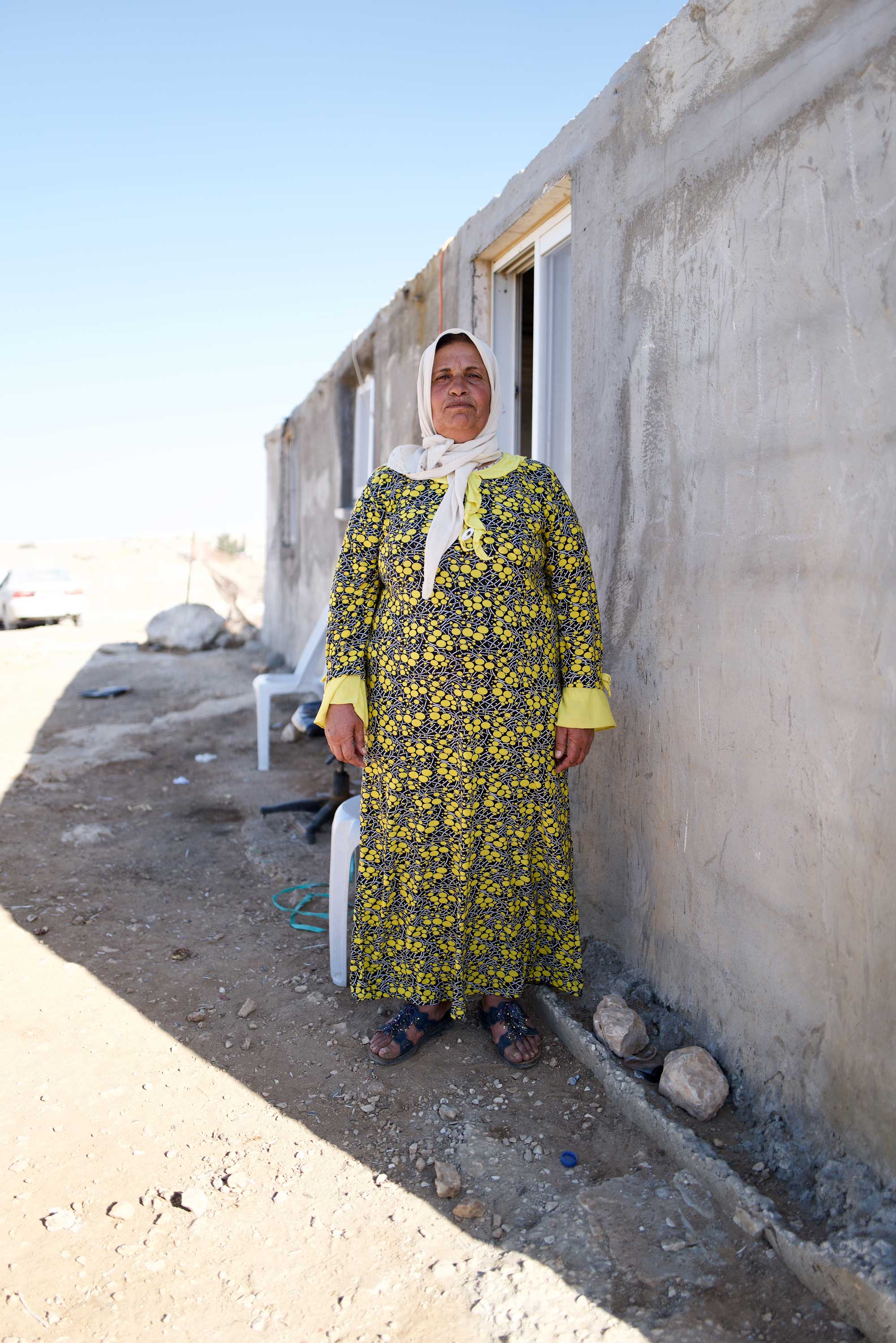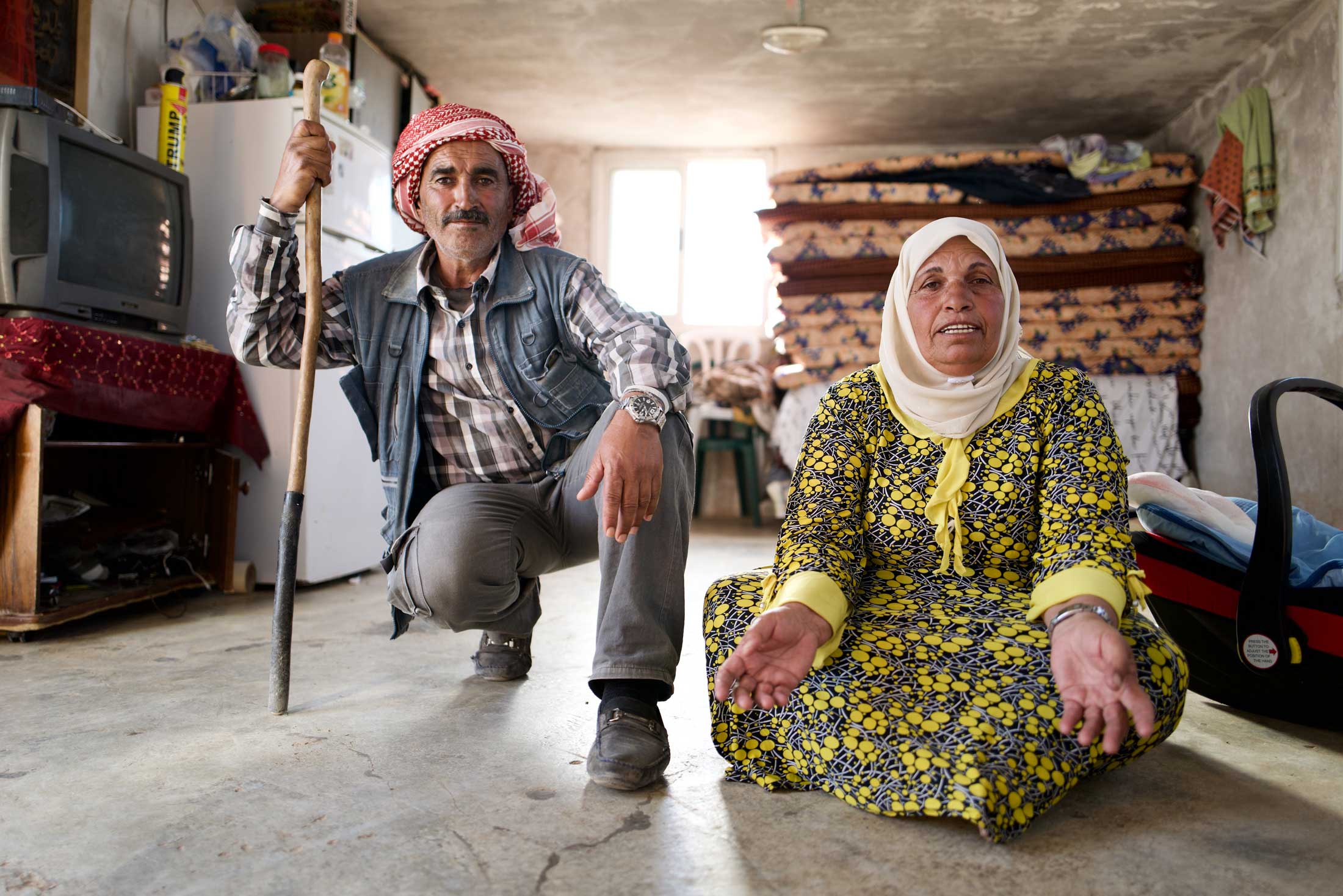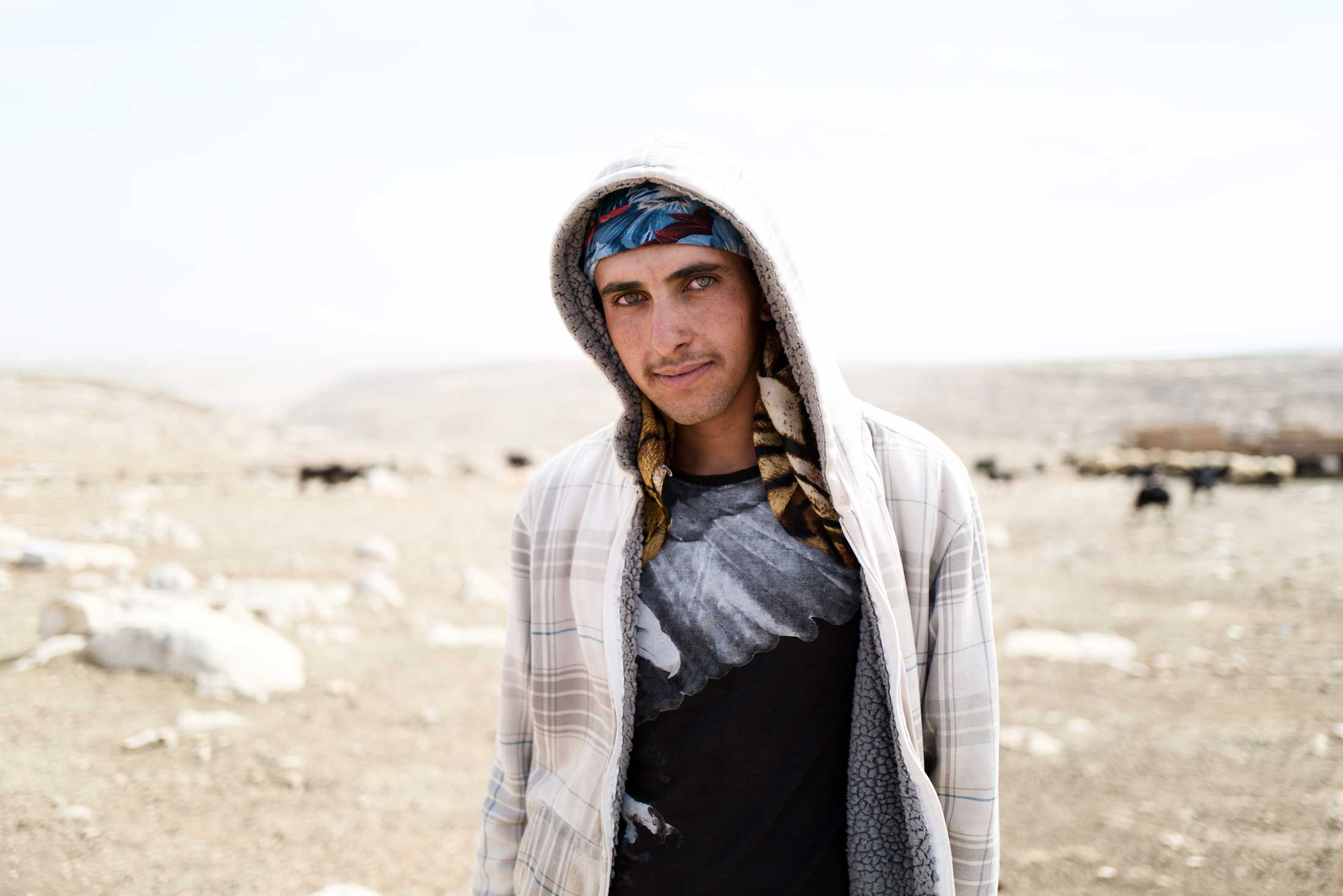Palestinian herder communities often face pressures from Israeli military forces and Israeli settlers that push them to leave their areas.
On 28 September 2021, Israeli settlers attacked the community of Umm Fagarah, injured nine residents and killed five of their sheep. One of the assailants hit a toddler with a stone. Ten homes, 14 vehicles and several solar panels and water tanks were damaged.
This photo essay tells the stories of children and adults from this and other herder communities in the Hebron hills, who are hanging on against all odds.
“We didn't think we'd come out of it alive. Muhammed was asleep in the room…They attacked us with stones. We started screaming. We thought they were going to kill us.”
Baraa, 23, a mother of three whose four-year-old son Muhammed had to be hospitalized after being hit in the head by a rock during the Umm Fagarah attack.
“We’ve been intimidated by settlers in our home many times.
Since the attack against my husband, my little daughter is truamatized. Every time she hears a car passing or sees someone she doesn’t recognize, she's scared that they might be settlers.” Waa’d, 26 year old, mother of six whose husband was run over by settlers in 2021, Al Ganoub
Injuries are often caused by Israeli forces who intervene in settler-initiated incidents, rather than by the settlers themselves.
During the settler attack on Umm Fagarah, Palestinians threw stones to drive the attackers away. After nine community members were directly hit by settlers, Israeli forces intervened and fired teargas, injuring 20 others, who were treated for inhaling teargas.
“Settler violence is the prime tool of taking over land … The settlements of Ma’on Farm and Avigayil are expanding. They’re provided with infrastructure, while we're deprived of the basics, and get demolition and stop-work orders. Even the water cistern has got a demolition order.
"Our herding lifestyle is in peril. We have to buy fodder, which we can't afford… We’re in trouble but we’re samdeen [hanging on]. We deserve a dignified life.”
Mahmoud, 57, Umm Fagarah
“The settlers behave like the lords of the land. As if they’re rightful owners and we’re the trespassers. The [Israeli] army is here to support and protect them. Over the years, I personally lodged over 100 complaints about settler violence to no avail. Living in fear is indescribable. Their aim is to displace us. But we’re here to stay. This is our life and our land.”
Juma'a, At Twani.
“We live in a constant state of fear … We live in terror… We don’t feel safe in our own homes … There are nights I can’t sleep … I fear they'd set us on fire, like they did to the Dawabshe family [elsewhere in the West Bank]. I fear for my children. I can’t keep count of how many attacks we've suffered. I used to accompany my sons while herding, but I no longer can. I've had two strokes which has left me half paralyzed. One of them happened soon after the settlers attacked my son.” Fatima, in her seventies, mother of 13, At Tuwani
“In April 2019, settlers from Nof Nesher attacked us in our home. I was hit in the head with a metal pole. The army was present. Instead of protecting me, they called the police in Kiryat Arba [settlement]. At the police station, instead of being the wounded party I was treated as the perpetrator. I was released on bail. They made me pay 1,000 shekels [US$321]…”
Ziad, 64 year-old, father of six, Khirbet Bir al 'Idd
“We’ve been subject to settler and army violence for years. The worst started in August 2016 with the arrival of a settler called Gavriel ... The first thing he took over was water.
"He set up tents next to the water cistern, an old one but it could still hold thousands of cubic metres. It was enough to provide water for all our sheep and goats…
"Once water is gone, all follows. Water is life. Settler control over it means displacement for us. Without it, the herd cannot survive.”
Jamil, Al Ganoub.
Making grazing land off-limits to Palestinian herders means increased reliance on fodder, which is unaffordable. Herders are forced to buy it on credit. Al Ganoub, October 2021.
A demolished structure in Umm Fagarah. Between 2011 and 2021, Israeli forces demolished or seized twenty structures in this community. The most serious incident took place in 2011, when 30 children and 8 adults were made homeless, and the whole community (about 150 people) lost the use of their mosque, water pumps and a power generator.
Shattered windows and a vandalized vehicle following the Umm Fagarah settler attack.
“Life in Al Ganoub was good. We had lots of grazing land and the air was clean and fresh. Now we live on a land we rent, It's arid and near a landfill. The smell is unbearable but this is what we could afford.”
Sabiha, who had no choice but leave her home in Al Ganoub community in 2018 following settler violence.
Share this photo essay!
Herders and other Palestinians in the Hebron hills and across the West Bank are at constant risk of being forced to leave their homes or communities. Legal experts have warned that this may amount to 'forcible transfer,' a severe violation of international humanitarian law.
This risk is generated by what humanitarian organizations have identified as a 'coercive environment,' the multiple policies and practices related to the military occupation and the Israeli settlement enterprise. Israeli forces restrict Palestinian movement, construction and development. Israeli settlers routinely attack or intimidate Palestinians, often backed up by Israeli forces who stand idly by or intervene on the part of the attackers.
In 2021, most Palestinians injuries following the actions of settlers, resulted from the intervention of Israeli forces rather than directly from the settlers' actions.


































